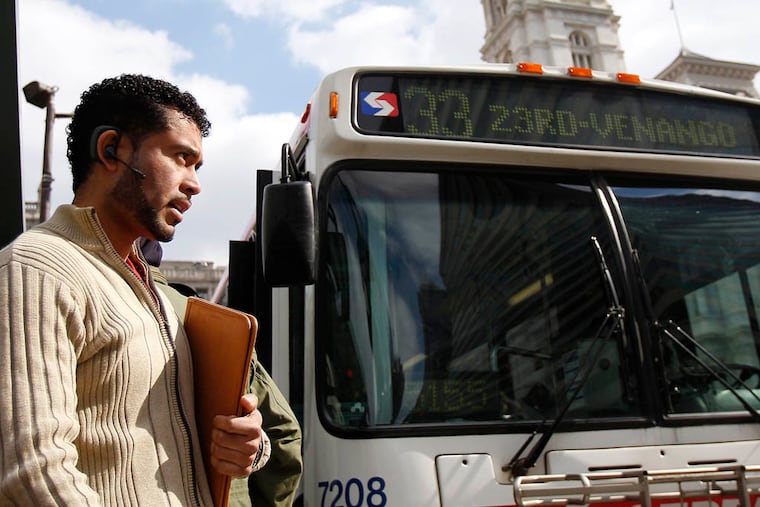SEPTA settlement leaves hard choices for another day
SEPTA and its largest union avoided a regionwide transit strike by postponing the day of reckoning on two major issues that will resurface soon: pensions and health-care contributions.

SEPTA and its largest union avoided a regionwide transit strike by postponing the day of reckoning on two major issues that will resurface soon: pensions and health-care contributions.
"I don't know whether I'm getting trick or treat," SEPTA general manager Joseph Casey said as he arrived on Halloween night for the final hours of negotiations at an Old City hotel.
In the end, he got both.
By settling on a two-year contract Friday instead of a five-year pact, SEPTA and Transport Workers Union Local 234 gave themselves - and their one million daily riders - a reprieve from a strike. But after nearly a year of negotiations, they left the thorniest issues on the table.
Rep. Robert Brady (D., Pa.), the labor leader who chairs the Philadelphia Democratic City Committee, prodded the two sides to resume negotiations Friday and push through to an agreement.
As negotiators and a mediator shuttled between hotel rooms on the upper floors, Brady staked out a lobby corner, working his phone and ignoring the costumed Halloween revelers swarming the lobby - superheroes, pirates, ghouls, and one couple dressed as a hot dog and mustard.
Brady, a veteran of many late-night negotiations, was also dealing with nervous Democratic leaders who feared a transit strike would reduce Democratic voter turnout Tuesday and imperil the prospects of Democratic gubernatorial candidate Tom Wolf.
Willie Brown, president of TWU Local 234, had said he would not let the Democrats' Election Day worries prevent his union from striking.
"I'm independent," he said.
That was just for leverage, said some close to Brown: He would not have called a strike before Election Day.
Brown won a wage increase for SEPTA workers - said to be 5 percent over the two years - and didn't resort to a walkout, as in 2009, when he said he was "the most hated man in Philadelphia."
Despite the handshakes and smiles for the cameras Friday night, Brown didn't settle the pension issue that he had said was the main sticking point during talks.
He had argued that TWU members were getting shortchanged on their retirement benefits compared with SEPTA managers.
That debate will continue.
The other cloud on the horizon is health-care contributions.
SEPTA workers, like many employees of large companies, have relatively generous health insurance benefits.
Such "Cadillac" insurance plans will soon be taxed more heavily than others under terms of the Affordable Care Act.
Beginning in 2018, a 40 percent excise tax will be imposed on the value of health insurance benefits exceeding a certain threshold. The thresholds are $10,200 for individual coverage and $27,500 for family coverage (indexed to inflation).
The "Cadillac tax" in Obamacare is designed to bring down overall health costs by increasing what some people have to pay.
That has angered many of the targets of the tax, like SEPTA workers.
The TWU and SEPTA have been trying to calculate the impact of the tax without knowing exactly what the costs will be in 2018.
Unable to come to terms on the issue, they agreed to wait two more years.
"We got it done," Brown said succinctly Friday night.
SEPTA board chairman Pasquale "Pat" Deon Sr. called the contract "fair to our union employees, our customers, and the taxpayers."
If, as expected, union members ratify the agreement and the SEPTA board approves it, the threat of a transit strike will be gone.
For now.
215-854-4587 @nussbaumpaul